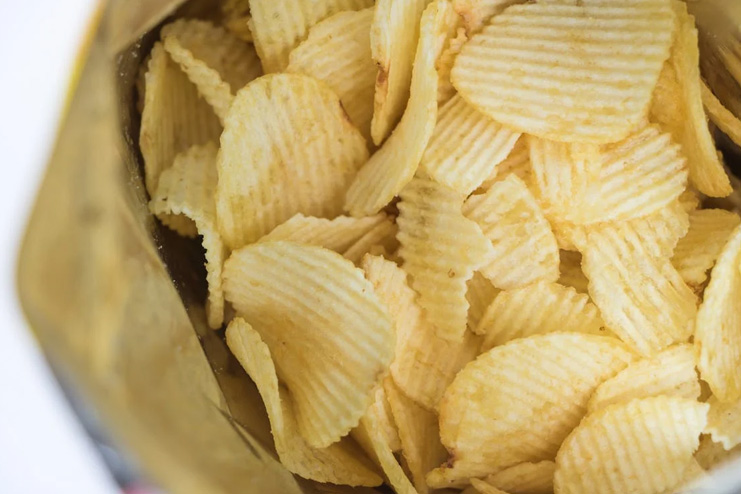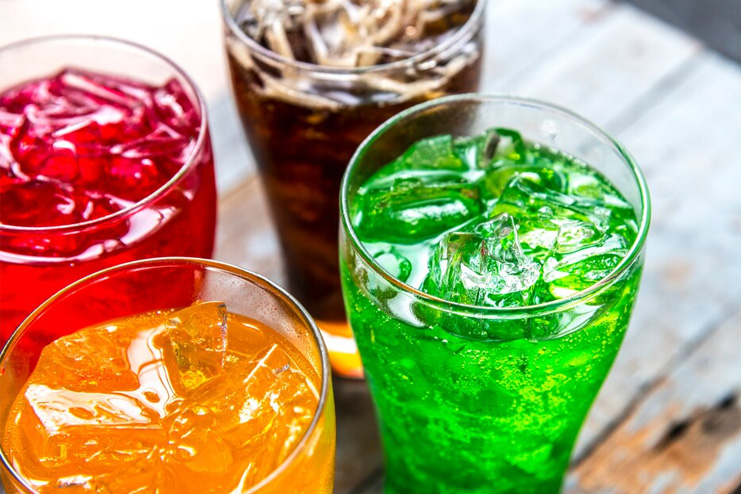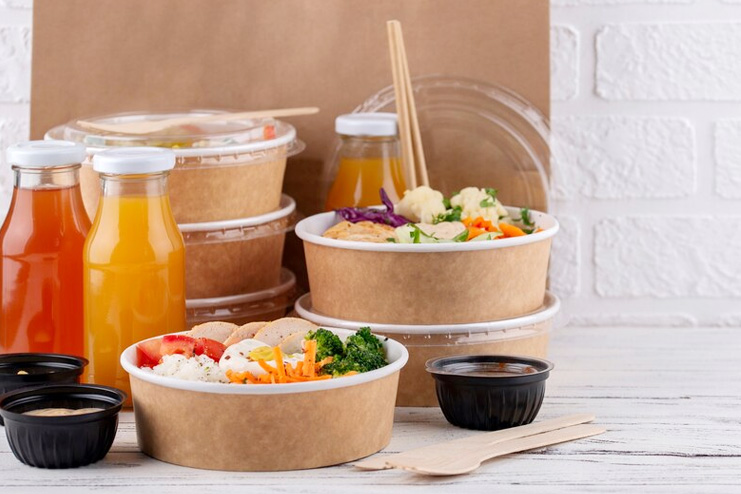Affiliate Disclaimer
Some links in this article are affiliate links. We may earn a small commission if you make a purchase through these links, at no extra cost to you. We only recommend products we find useful to our readersGiving teenagers wholesome lunches is essential for their development, growth, and academic success. Adolescence brings about significant physical and cognitive changes in the body, which require a healthy diet. Teens who eat healthy school lunches are guaranteed to acquire the energy, vitamins, and minerals they need to succeed in and out of the classroom. Sadly, many typical lunch meals may be harmful to their health.
This article aims to identify unhealthy lunch foods that teens should avoid to encourage improved nutrition. Parents and guardians can improve their teen’s overall health by making better decisions by knowing which meals to avoid.
We’ll look at five bad things for you: soda, processed meats, sugary snacks, refined grains, and high-fat dairy products. These products can harm health by causing fat, poor focus, and chronic ailments. We can encourage better eating habits and enhance the health of teenagers by substituting these bad options with wholesome ones.
1. Sugary Snacks and Desserts

Sugary snacks and desserts during lunchtime are not only unhealthy lunch foods, but they can also substantially impact adolescents’ health and academic performance. Consuming these high-sugar goods can cause quick rises in blood sugar levels, followed by sudden energy dumps. It can lead to poor attention and lower productivity in school, which can impact academic performance. In addition, the consumption of sugary snacks and sweets regularly can hurt oral health, leading to an increased likelihood of developing cavities and other dental problems.
Consuming excessive amounts of high-sugar foods contributes to weight gain and increases the risk of developing obesity-related health problems. To improve health and maintain higher energy levels throughout the day, it is recommended to replace sugary snacks with healthier alternatives. Various healthful options, such as fresh fruit, yogurt, or homemade granola bars, are available. These options offer necessary vitamins and minerals without the harmful side effects that sugar can cause. Not only do these alternatives satiate cravings for sweets, but they also contribute to the general health and well-being of the individual.
Read More:
2. Processed Meats

Due to their high salt content and the inclusion of preservatives like nitrates, processed meats present a substantial threat to human health and the environment. Compounds like this have been linked to a variety of health problems, including elevated blood pressure and an increased likelihood of developing cardiovascular disease. In addition, research has shown that consuming processed meats over an extended period is linked to an increased risk of acquiring some malignancies, including colon cancer. To mitigate these hazards, it is recommended to select healthy protein options.
Grilled chicken and turkey are healthier choices that provide critical nutrients and do not contain any hazardous additives in processed meats. There is also the possibility of including plant-based proteins such as beans, lentils, or tofu in meals, which can be a wholesome and environmentally friendly alternative. Teenagers can improve their overall health and lessen their exposure to the harmful effects of processed meats by selecting these healthier alternatives to meat as their source of protein.
Health Spectra Recommended Articles:
- 5 Must have Protein rich diets for a Vegan
- 12 Roles Of Proteins In The Body – Know The Importance!
- Shake Up Your Protein Game: 7 Delicious Protein Shakes Available on Amazon
3. Chips and Other Salty Snacks

There are considerable health issues associated with the use of chips and other salty foods, which are popular options for lunch among adolescents. These snacks are known for the high amount of salt they contain, which can cause an increase in blood pressure and contribute to an increased risk of dehydration and sodium intake. In the long run, consuming excessive salt can strain the cardiovascular system, which may eventually result in heart disease. In addition, chips and other similar snacks offer minimal nutritional benefits. They frequently contain fats that are not good for you and are deficient in crucial vitamins and minerals. Another factor that may contribute to poor eating habits and weight gain is the consumption of these snacks regularly.
Consider lower-salt and higher-nutrient-content options to encourage people to make healthier choices. Air-popped popcorn is a delicious and calorie-conscious alternative. Crackers made from whole grains are an excellent source of fiber and can be a very excellent complement to lean protein sources such as cheese or turkey. Sticks of vegetables dipped in hummus are a good source of vitamins, minerals, and healthy fats. Adolescents can improve their general health and enhance their long-term well-being by substituting these choices for salty snacks and chips.
Read More:
- 7 Ways to Remove Excess Salt From Body For Overall Better Health
- 8 Ways To Reduce Salt Intake Quickly For Better Well Being
4. Sweetened Beverages

Due to the high amount of sugar contained in sugary drinks, such as soda and sports drinks, there is a substantial risk to the safety and health of adolescents. Consuming these beverages regularly has been associated with an increased risk of the development of type 2 diabetes and dental problems, in addition to an increased likelihood of becoming overweight. The use of these beverages contributes to an excessive amount of calories, which might result in weight gain over time. They have very little nutritional value.
Drinking plenty of water is essential to maintaining general health, but carefully selecting beverages is also necessary. Water is the most effective choice for hydrating because it contains no calories, sugar, or chemicals. A refreshing alternative that offers additional vitamins and antioxidants is water infused with fruits, herbs, or both. Teas made from herbs that are not sweetened are another excellent option, as they provide hydration in addition to the possibility of health benefits.
By substituting sweetened beverages with healthier alternatives such as water, infused water, or herbal teas, adolescents can lessen the amount of sugar they consume, improve their ability to stay hydrated, and positively contribute to their overall health and well-being over the long run.
5. Pre-Packaged Convenience Foods

Even though pre-packaged foods are convenience meals popular among adolescents due to the ease and speed with which they may be prepared, they come with several essential downsides. Artificial ingredients, preservatives, and harmful fats are frequently included in these foods, potentially negatively impacting one’s health. Eating pre-packaged meals regularly contributes to bad dietary habits because these meals offer very little nutritional value and frequently need more critical components such as vitamins and fiber.

Preparing meals or snacks at home is a preferable choice. Sandwiches made with whole grains and lean proteins, such as turkey or chicken, are excellent for providing sustained energy and essential nutrients. Salads, thanks to various colorful vegetables, contain vitamins, minerals, fiber, and other nutrients. Fresh fruit is a convenient, alternate, nutrient-dense snack without added preservatives or artificial additives. It is a source of vitamins and natural sugars and does not contain any synthetic substances.
Suppose that teens prepare their meals rather than purchase pre-packaged convenience items. In that case, they can enhance their overall health, improve their dietary intake, and create healthier eating habits that will benefit them in the long run.
Conclusion
Promoting good teen nutrition and well-being requires ensuring teenagers avoid lousy lunch options, including sugary snacks, processed meats, chips, sweetened beverages, and pre-packaged convenience foods. These foods are very deficient in essential nutrients and raise the risk of obesity, hypertension, and poor concentration, among other health issues. Instead, parents should prioritize well-balanced meals that include whole grains, lean proteins like tofu or grilled chicken, and fruits and vegetables.
Parents can improve their teen’s academic performance and physical health by emphasizing nutrient-dense selections and healthy lunch habits. With the correct information and decisions, we can enable teenagers to form wholesome eating habits that will last a lifetime.
In this Article


















